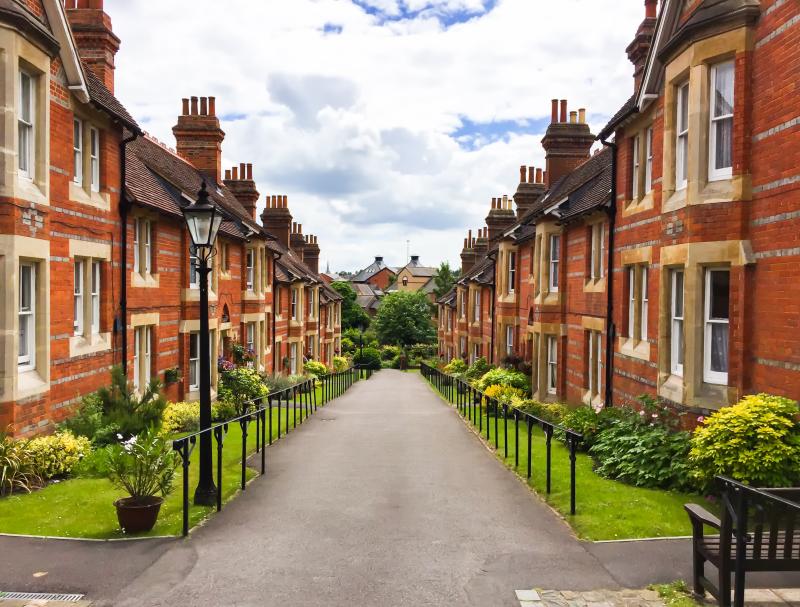Buying Property In The UK As A Foreigner: 3 Things To Know

The prices of real estate properties in the United Kingdom (UK) are the highest in the world. There are many factors contributing to this, and the very high standard of living is only one among them. For many years now, market reports have consistently shown that the cost of living in London is one of the highest all over the globe, next only to Tokyo.
The expensiveness of home mortgage amortization or rent paid by middle-class workers takes a lion’s share of the cost of living in that particular city. Foreigners have been enticed to invest in the UK market because of the prospect of earning high rental income. If you’re looking for some good finds, you can turn to Thirlmere Deacon investment consultants and similar professionals from other companies for information and assistance.
To get you started, here are a few things you ought to know if you’re a foreigner and you want to buy property in the United Kingdom:
- There Is No Discrimination Against Foreigners
UK law doesn’t discriminate against foreigners. They’re allowed to buy land in the sovereign country just as the locals are allowed to buy land and build their homes. There aren’t any restrictions on expats buying property in the UK. Foreigners and non-residents alike can even apply for and be granted a mortgage. However, there are more stringent requirements on non-citizens who haven’t been in the country for at least two years.
You can even rent out your property even if you don’t live there as long as you manage your tenants well. However, you’re required to hire a UK-licensed solicitor or conveyancer to take care of your paperwork. Generally, the same taxes that apply to residents and citizens apply to foreigners and non-residents as well. You have to pay property taxes, stamp taxes, rental income taxes, and, if you’re going to sell the property for profit, capital gains taxes.
- Higher Prices Do Not Mean You Will Get Higher Rents
If you’re thinking of investing in the UK real estate property market, you need to let go of any preconceived assumptions you might have that the higher the prices of the properties, the higher the rents they’d be able to yield for you. It doesn’t necessarily work that way.
Some foreign investors, perhaps coming off from their personal experiences in their home countries, start off with the assumption that they should buy properties from the high-end, upmarket parts of the UK so they can take advantage of the high rental incomes. They might be in for a disappointment if that’s their only criterion for investment.
You can perform a market test to find out whether your thesis is true or not. You can look up specific places in any city by checking out the most popular property sites and search engines for the area. Get the prices for the properties located in the high-end and upmarket sections. After you’ve done this, try to compare it with the amounts of rent that people would be willing to pay for the homes in those locations.
You can also look at sites where those looking for places to rent publish the amounts they’re willing to pay. You might find some that match your hunch. But don’t be surprised if in many instances you find out that people aren’t willing to pay more for homes that are supposedly more expensive and located in high-end neighborhoods. Some resourceful investors are able to rent out less expensive places for higher rents. You’ll soon realize that you might just eat up into your profit margins if you invest in expensive properties.

- You Do Not Have To Buy And Occupy
Another thing you ought to know about investing in UK real estate properties is that you don’t have to occupy the houses or properties you buy to be able to keep them. In some countries, you’ll have to reside in the home you acquire for a certain number of months each year in order for you to claim that the property is yours. This is a requirement in many places, and it tends to turn away investors who won’t be able to buy and occupy.
There’s nothing in UK real estate law saying that you have to be a resident of the same borough where you intend to buy a real estate property. Neither are you required to occupy or to live in the home you bought for any minimum number of weeks or months each year. There are many absentee landlords who own property in the country.
Buying UK Real Estate
There are practically no restrictions in the United Kingdom when it comes to foreigners and expats who want to buy land and other real estate property. However, if you haven’t been in the country for at least two years, you’ll most likely face stringent requirements on mortgage. What's more, keep in mind that you’ll have to pay the same taxes that citizens and residents do such as property, stamp, and rental income taxes.
More to Read:
Previous Posts:











